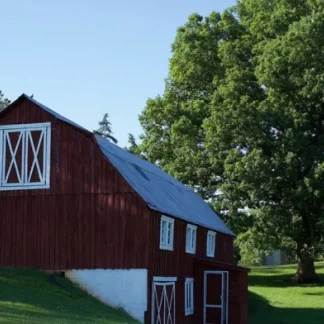New Life for Youth - Men's Ranch
Beaverdam, Virginia, 1500 Log Cabin Rd., 23015
Available Programs
- Adult program
- Program for men
- Total beds : 100
- Young adult program
Insurance and Financial
- Self-pay options
- Monthly : $1,600
- Private insurance
- Financing available
About this Facility
New Life for Youth - Men's Ranch is a Christian-based residential treatment program for those women struggling with substance and alcohol issues. Services include life skills training, Bible study, counseling and more. New Life for Youth - Men's Ranch is located at Beaverdam, Virginia.
New Life for Youth offers a Christian-based residential treatment for those individuals struggling with substance and alcohol issues. They believe in the power of transformation as opposed to incarceration, they also believe that the lives of the individuals can be changed by the grace of God.
Every resident must complete house chores including kitchen, laundry, maintenance, construction or working in one of their contract departments.
They also offer different group sessions and classes including Studies for New Christians and Group Studies. Recreation is part of the program and a privilege for all residents with the purpose or regular exercise, it may include hikes, sports, or other activities determined by the staff.
Contact us for more information: (804) 276-6059

Contact New Life for Youth - Men's Ranch
Connect with New Life for Youth - Men's Ranch by calling their admissions team directly.
(804) 276-6059 Website Get Directions